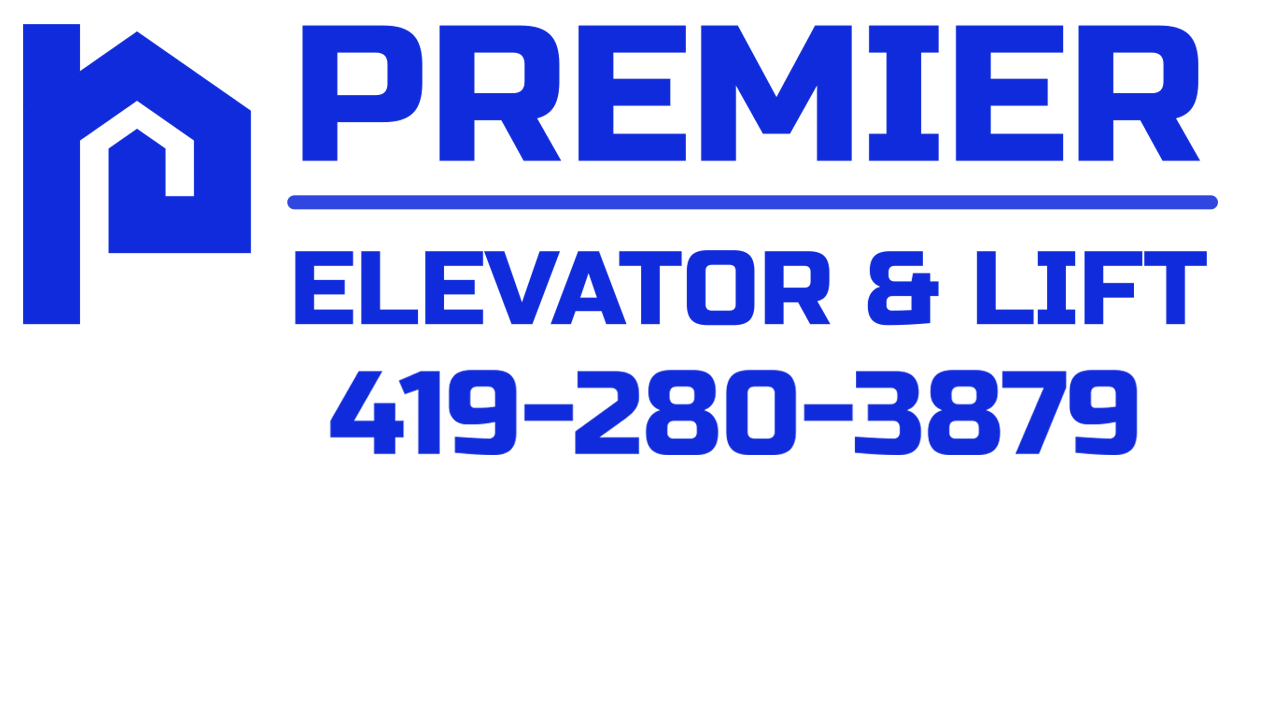Determining The Cost of a Home Elevator in The Ohio, Indiana and Michigan Markets
Breaking down the costs
Learn about the many factors that go into the pricing of home elevator installations.
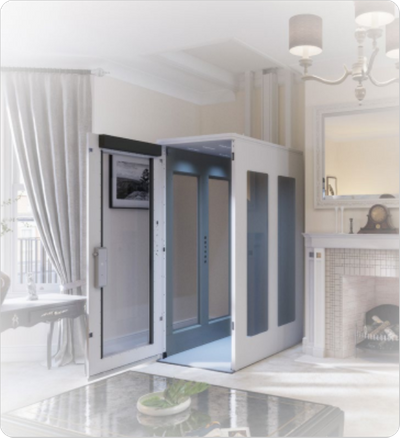
Are you considering installing a residential elevator in your home?
Elevators provide many advantages, but most importantly, they provide accessibility for people with mobility issues.
Elevators offer value due to the sheer convenience and mobility. Whether you're in a commercial or residential building, an elevator can make access between floors easier and keep you in your home longer. But what about the cost of the installation?
Factors that affect installation cost include:
- Structural modifications to the building are needed, such as reinforcing walls or floors
- Space availability in the home. If space is limited, an exterior hoistway is an option
- Type and size of elevator system chosen (Hydraulic, Gear or Winding Drums)
- Complexity of the design
- Power supply requirements and whether or not existing electrical wiring can support retrofitting.
- Moving any plumbing, electric, or HVAC system that would interfere with elevator operation
- Add to this any additional features desired, such as lighting, mirrors, or a special finish on the cabin walls and you have a wide range of variables that could potentially increase or decrease installation costs.
Fortunately, Premier Elevator & Lift is here to help you make the most educated decision for your home elevator installation in Ohio, Indiana and Michigan. Our team of experienced professionals will discuss each of these factors with you and provide an estimate based upon the unique needs of your home or building.
How long does it take to have a home elevator installed?
The time it takes to install a home elevator can vary depending on several factors such as the size of the hoistway, length of travel and type of installation. Generally speaking, most installations take around 2-3 days from start to finish. However, it is important to note that this timeline may be extended due to unforeseen complications such as subcontractor or construction delays.
Who can I contact for more information about having a home elevator installed in my house or residence?
It is best to contact a certified and experienced installation provider like Premier Elevator & Lift when you want a quality job done right the first time. We will be able to guide you through the entire process and answer any questions that you may have regarding safety features, customization options, cost savings strategies, and timeline estimates. Additionally, we can also provide guidance about any local building codes and regulations that may apply to your home.
What are some home elevator options to consider?
There are various finish options available for elevator cabs such as stainless steel, wood or powdercoat, giving you the ability to choose an elevator that best fits your home's decor. Some popular options include raised panel cab walls, mirrored cab walls, frosted glass cab walls, and custom wood trims.
Some elevators may also come equipped with safety features such as a hands-free emergency phone and emergency alarm systems. Clear accordion car gates with powergate operation can also be used to provide easy entrance and exit of the elevator. It is important to note that lighting is required above any interior and exterior door for safe entrance and exit of the elevator and 120v will be used for illuminating the car interior.
What safety features should I look for when buying a home elevator?
When selecting a home elevator, it is important to make sure that it meets all safety requirements and has the necessary features. Some of these include an emergency stop button, intercom system, phone line or other means of communication in case of an emergency. Additionally, look for elevators with automatic doors which will open when the car reaches the desired floor. Other safety features included are an emergency lighting system and automatic leveling devices which will ensure that the elevator car is safely aligned with the landing before opening the doors.
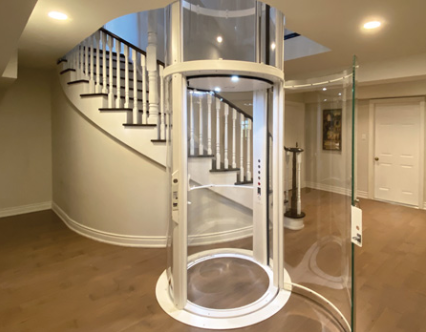
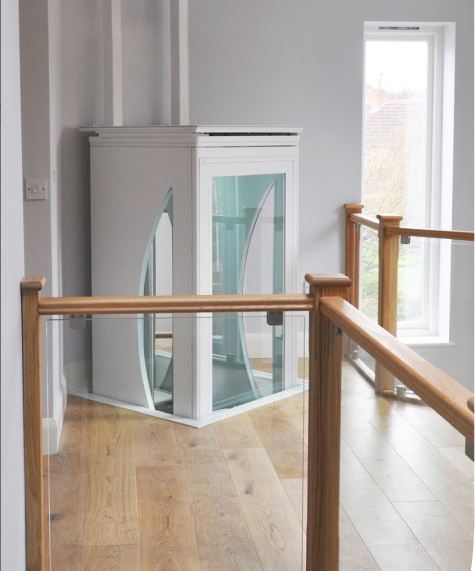
What type of electrical systems are needed for a home elevator installation?
In order to make your elevator operational, you will need to install new electrical components of both 120v and 220v. Specifically, the 220v is needed for running the lift while the 120v will be used for illuminating the car interior. Lighting is required above any interior and exterior door for safe entrance and exit of the elevator.
Do you work with our contractor?
Yes! Premier Elevator works with contractors to ensure a smooth and successful installation from initial concept to the final punch list. Our team of experienced professionals will discuss each factor relevant to your project's success with you and your contractor.
What is the average cost of a home elevator in the Ohio-Indiana and Michigan markets?
Costs per brand of elevators are relatively comparable, however, the addition of options, see below, and upgrades vary greatly. Many residential elevators are typically hydraulic, geared traction or winding drum models. Hydraulic systems use hydraulic oil as their power source and provide smooth transitions between floors. Geared traction models use electric motors and counterweights to lift the elevator car from floor to floor and winding drum elevators use a drum and cables to lift the car. The cost of a home elevator in the Ohio-Indiana and Michigan markets can range anywhere from $15,000 to over $50,000 depending on size, stops and features. Typically retrofit and installation into existing structures cost more due to demolition and reconstruction. In some cases, an elevator will not fit inside an existing home and an exterior hoistway is the only option.
Additionally, maintenance plans are recommended for continuous safe operation of your elevator. Most maintenance plans operate on a bi-annual or annual plan to clean, inspect, and lubricate moving parts in order to reduce the risks of major repairs. Full load tasks are required every five years.
Does a pit need to be installed for a home elevator?
Yes, it is necessary to install a pit for the majority of home elevators. The bottom of most elevators is 10 inches thick, and this will permit the car floor to be level with the lowest floor level your elevator will be traveling. Pits are typically 4 inch thick concrete and 10 inches deep below the basement floor to permit the car to be level with the lowest floor level.
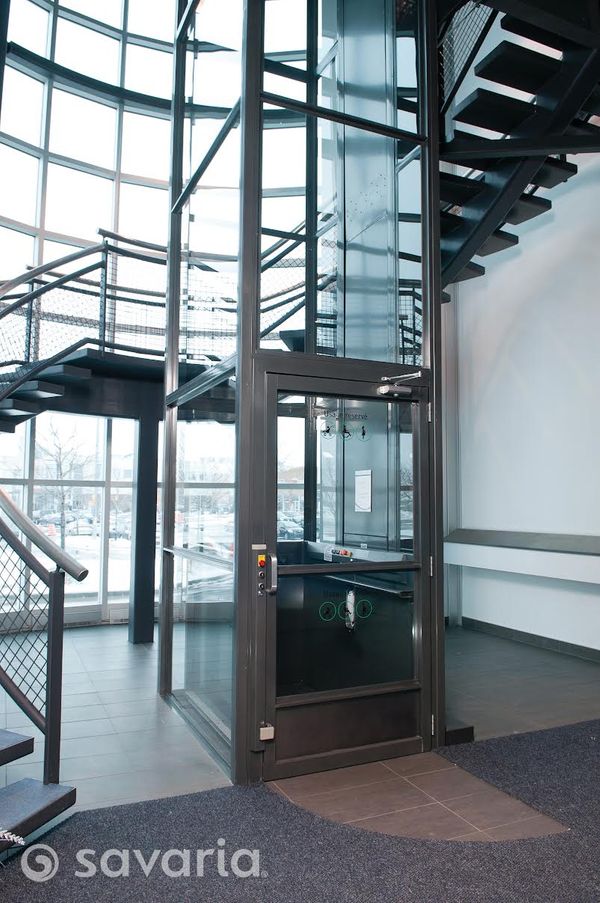
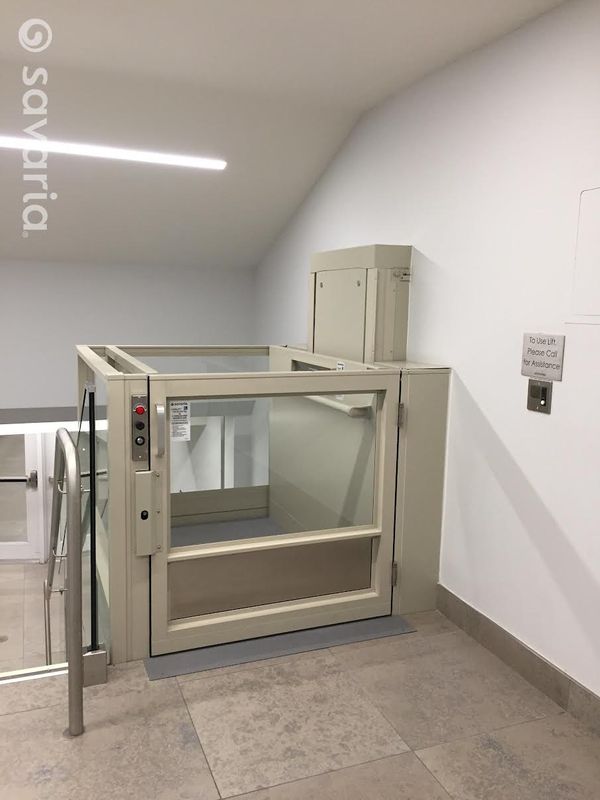
Breaking Down the Cost of Home Elevator Models & Installations
Adding a home elevator can revolutionize your life - and make it more wheelchair accessible while increasing the resale value of your home. The cost of installing one varies depending on factors like the type, whether it’s a retrofit, how many floors you need to reach, and the level of customization required. While the average home elevator costs $30,000, expect to pay anywhere between $25,000 and $50,000.
Unpacking the Cost of Installing a Home Elevator
- Ultimately, the cost of your residential elevator installation depends on a variety of components, including materials and equipment you choose, site prep costs, local labor charges and any necessary construction.
- Equipment
- Installing an elevator can cost anywhere from $25,000 to $50,000 for both the equipment and installation fees.
- Site Preparation
- To ready the location for an elevator, site preparation costs can range from a minimum of $5,000 up to as much as $30,000.
- New Construction
- If new construction is necessary for the installation of your elevator, you may have to enlist the help of a local architect (costing around $2,000 to $9,300) and a structural engineer ($350 to $700). Electrical wiring should be considered too, and generally comes at a cost of $500 to $2,100. An upgrade or replacement of an electrical panel can range from $500 to $1,800.
The Cost of Elevators for Residential Properties: A Comprehensive Breakdown by Type
- The total cost of installing a home elevator relies heavily on the type and model chosen. Even though brands offer different features, the underlying mechanics are often identical.
- Vertical Platform Lift Cost
- Are you interested in adding a vertical platform lift to your home? Great news - it's an affordable yet efficient way to go! This elevator can travel up to 14 feet, and is great for indoor or outdoor use. With customization options available, the cost of installing a vertical platform lift may range anywhere from $10,000 to $35,000. However, depending on necessary structural modifications (e.g., additional studs or ramps) that need to be made prior installation - this figure could vary accordingly and rise slightly higher than expected.
- Hydraulic Elevator Cost
- Hydraulic elevators are an excellent choice for wheelchair users due to their immense capacity and ability to serve multiple stories. On average, these durable lifts cost between $25,000 - $50,000 as they utilize a powerful hydraulic pump that is connected directly to a cylinder used to raise or lower the elevator cab.
- Shaftless Elevator Cost
- Investing in a shaftless elevator can be an affordable way to get around, with units ranging between $20,000 and $35,000. Its compact size allows for single-person use even in the smallest of spaces; however it is only able to travel up one floor at most. Installation requires either cutting through your ceiling or attaching the unit to your home's exterior. If you're looking for something more upscale such as glass walls or wood paneling on the inside walls then expect costs upwards of $40,000 dollars plus installation fees.
- Cable-Driven Elevator Cost
- Cable-driven elevators are one of the most well-known home elevator systems, and typically cost anywhere between $25,000 to $45,000. They function with the help of a pulley system that consists of traction steel ropes powered by an electric motor gearbox.
- Outdoor Elevator Cost
- An outdoor elevator can be an affordable solution for those on a budget, costing anywhere between $20,000 to $30,000. For added durability in any type of weather condition, these elevators are constructed with heavy-duty aluminum and steel and come equipped with a wide array of platform sizes that guarantee your satisfaction.
Additional Factors of Elevator Cost
- While the model of your elevator is a major factor in determining cost, there are other elements to consider that can help keep you from exceeding your budget.
- Number of Floors
- If you have a multi-story home, your elevator installation will become increasingly costly with each additional floor. For instance, an extra $1,000 to $3,000 should be allocated for every story over one. For example, if you were installing an elevator in a four-story property, then the final bill could range from $30,000 to $55,000. It's also important to note that vertical platform lifts or shaftless models are not suitable for homes taller than two stories - so make sure this is taken into account when planning your budget!
- Customizations
- Elevators aren’t just functional, they can also be aesthetically pleasing. Customization options like modern glass paneling or wooden Victorian features will raise the cost of home elevators to over $50,000, but smaller touches such as built-in phones and music speakers won’t break your budget. When you decide what design elements suit best with your home's overall aesthetic make sure to compare quotes for basic customizations in order to get the most bang for your buck!
- Gates and Doors
- Home elevators with accordion folding gate doors are often the standard option, but they lack in aesthetic appeal. If you're looking for a door that blends seamlessly into your home's design or an updated automatic sliding door, be prepared to invest up to $25,000. When it comes time to resell your property down the line, fitting a concealed elevator door can easily prove beneficial and is definitely worth considering.
- Inspections and Maintenance
- To make sure that your elevator remains compliant, secure, and runs efficiently, you must account for building permit costs ranging from $200 to $2,000 and an annual inspection costing between $75 and $300. While maintenance contracts are not a requirement, they can be quite beneficial - contractors typically charge anywhere from $150 to $300 per hour for labor. These contracts often include yearly inspections at no extra cost.
- The Elevator’s Brand Name
- Numerous brands provide a selection of styles and prices to suit many budgets, so the choice depends on your own personal style. Wessex elevators typically cost between $25,000 - $35,000, Savaria Telecab elevators have an average price of $28,000 and Custom Elevator Manufacturing averages around $30,000 -$40,000.
Discover 4 Practical Ways to Cut Costs When Installing a Home Elevator
- If you're hoping to reduce the cost of a residential elevator, looking for an economical quote from a dependable contractor is only one part of it.
- 1. Select a Simple Design
- Consider whether you require the luxurious top-of-the-line model with vibrant glass panels, or if a simple vertical platform lift and cable-driven elevator can still satisfy your needs while being easier on your wallet.
- 2. Choose the Compact Solution
- Is a large 3'x5' elevator necessary for your family? Consider opting for a more efficient 3'x4' design, which will not only help you save money but also fits one person comfortably at any given time.
- 3. Fewer Floors
- If you don't require access to all the levels of a 4-story townhouse, why not consider installing an elevator that only goes up to the second floor? It'll save you big time in comparison!
- 4. Avoid Future Retrofitting and Construction
- If you're deciding on installing an elevator during a new home build, it's essential to know that doing so at this stage is much more cost-effective than retrofitting later. Put in your investment now and avoid costly construction down the road.
Testimonial for Our Service
"I recently had the pleasure of working with John and Eddie from Premier Elevator and Lift for our home’s elevator maintenance, and I can’t say enough good things about the experience. From the moment I reached out for assistance, their customer service was responsive, friendly, and incredibly knowledgeable.
Additionally, I was very happy to sign up for an annual maintenance plan! The convenience of having regular maintenance scheduled gives me peace of mind knowing our elevator is in top shape and compliant with safety standards.
I highly recommend Premier Elevator and Lift for anyone in need of reliable elevator maintenance. Their professionalism and attention to detail are second to none. Thank you, Premier, for making this process so seamless and stress-free!"
-Don H.
